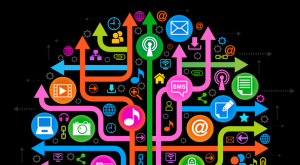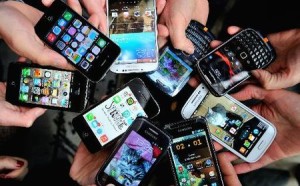Op-Ed: What Is Real When Reality Is Shaped By Ads?
By V.M. Bruno
Live Wire Staff Writer
In the advent of the 21st century, we found ourselves fixated on technology. These advancements give us hope as well as fear for how it would effect our daily lives. Some speculated that with such advancements, our collective lives would improve. Other’s pondered it’s undesirable effects, saying that we would get sucked into a virtual world and forget the reality before us.
Fourteen years later, the world has changed. We now have computers that we can carry in our pockets, as well as the normalcy of tablets and laptops being carried on our person. We have numerous user names and passwords, as well as an active stream of emails, texts, and private messages ringing in our pocket, distracting us from our daily tasks. Simply put: we are constantly plugged into our virtual worlds and it’s representation of reality.
Advertisers and investors have taken notice. We find ourselves being bombarded with images, music, and testimonials that illustrate a life that is intended to be realistic. Photoshopped celebrities on the covers of magazines gives the public a distorted image of what is “normal.”
I commonly see blond women with a body type that makes me think they desperately need a hamburger, smiling on the covers of magazines surrounded with conflicting statements like “love you for you!” and “how to lose 6 pounds in 2 weeks!”
But what does that actually teach the public? It’s effects have been highly profitable. With new products to reduce aging as well as weight loss programs, gym memberships and frivolous beauty products, corporations are making millions off of unhappy people who are being deluded into thinking that they are unattractive. They have created a problem and a solution with money and the power of repetition and we are given a simple message: your happiness is contingent upon the purchase of this product.
Interestingly enough, when we use social media we build an image or a brand for ourselves of how we wish others to see us, not unlike an advertising campaign for a new item on the market. It appears that as a society, we see ourselves as a marketable items rather than human beings.
One of the most intriguing developments of the social media culture is the “selfie.” For those unaware of the phenomena, a “selfie” is a photo that an individual takes of themselves. Call it what you will, but it appears that we take photos of ourselves not only for self exploration, but to imprint an image on our peers of how we wish to be seen. We compare our personal advertisements to our peers’ advertisements, and judge ourselves accordingly even though we know that not everything there is what it seems.
So what’s the problem with all of this? We are living in a fairy tale dictated by an ever changing market but do we fully acknowledge it? We spend hours consuming and regurgitating fallacies of our image as a nation, as a generation, and as an individual. And if we continue to stay in wonderland, we will soon forget the values of our shortcomings and our undesirable traits.
Will we learn from our mistakes if they are no longer documented? Probably not. Our society will probably become fragmented as we selfishly promote ourselves to be as perfect as the advertisements we regularly see. We have lost touch with ourselves as well as one another. Why? Because we have internalized and mirrored corporate methods of communication that chatter incessantly but speak nothing of substance. And as a result, we too have begun to chatter and mimic the most powerful influence over our daily lives.
Meanwhile, we have our lives conveniently delivered to us by companies that want to charge us for our usage. We will soon forget what life was like before our smart phones entered our hands and how to maintain friendships without social media. It begs the question of what path we will take as a society: will we continue to live in the matrix or will we acknowledge this fabricated lifestyle and move on?
I personally believe we will deceive ourselves into a virtual reality, but I’d like to leave you all with one question: where will you be in 5 years?









